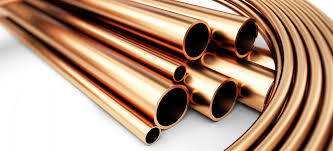In healthcare facilities, the reliability and safety of plumbing systems are paramount. One crucial component that plays a significant role in maintaining these standards is the use of medical copper pipes. These pipes are specifically designed to meet the stringent requirements of medical environments, ensuring that healthcare facilities operate smoothly and safely. This article explores the critical role of medical copper pipe in healthcare settings and highlights their advantages.
Superior Safety Standards
1. Antimicrobial Properties: Medical copper pipes are known for their natural antimicrobial properties. Copper surfaces can kill a wide range of harmful bacteria and viruses, including those responsible for healthcare-associated infections (HAIs). By inhibiting the growth of these pathogens, medical copper pipes contribute to a cleaner and safer environment for patients and healthcare workers.
2. Chemical Stability: Unlike some other materials, copper does not react with disinfectants and other chemicals commonly used in healthcare facilities. This chemical stability ensures that the water transported through medical copper pipes remains free from contaminants and safe for various medical applications, including patient care and laboratory use.
Reliability and Durability
1. Long Lifespan: Medical copper pipes are exceptionally durable and can withstand high pressures and temperatures. Their robust nature means they have a long lifespan, reducing the need for frequent replacements and maintenance. This reliability is crucial in healthcare settings, where any disruption in the plumbing system can have serious consequences.
2. Leak Resistance: Copper pipes are less prone to leaks compared to other materials. This leak resistance ensures a consistent and uninterrupted supply of water and medical gases, which is vital for the functioning of healthcare facilities. Reliable plumbing systems are essential for maintaining hygiene standards and supporting critical medical equipment.
Environmental Benefits
1. Recyclability: Copper is a highly recyclable material, and medical copper pipes are no exception. At the end of their lifecycle, these pipes can be recycled and repurposed without losing their beneficial properties. This recyclability reduces the environmental impact of healthcare facilities and supports sustainable practices.
2. Energy Efficiency: Copper pipes have excellent thermal conductivity, which means they can efficiently transport hot water and medical gases. This energy efficiency reduces the overall energy consumption of healthcare facilities, contributing to lower operational costs and a reduced carbon footprint.
Compliance with Standards
Medical copper pipes are manufactured to meet stringent industry standards and regulations. They comply with guidelines set by health and safety organizations, ensuring that they are suitable for use in medical environments. This compliance provides healthcare facilities with confidence in the safety and reliability of their plumbing systems.
Conclusion
In summary, medical copper pipes play a vital role in ensuring the safety and reliability of plumbing systems in healthcare facilities. Their antimicrobial properties, chemical stability, durability, and leak resistance make them an ideal choice for medical environments. Moreover, their environmental benefits and compliance with industry standards further enhance their value.



